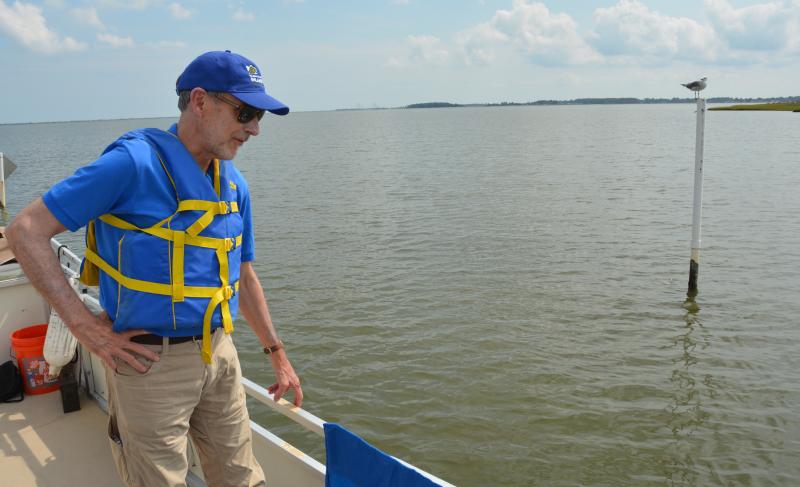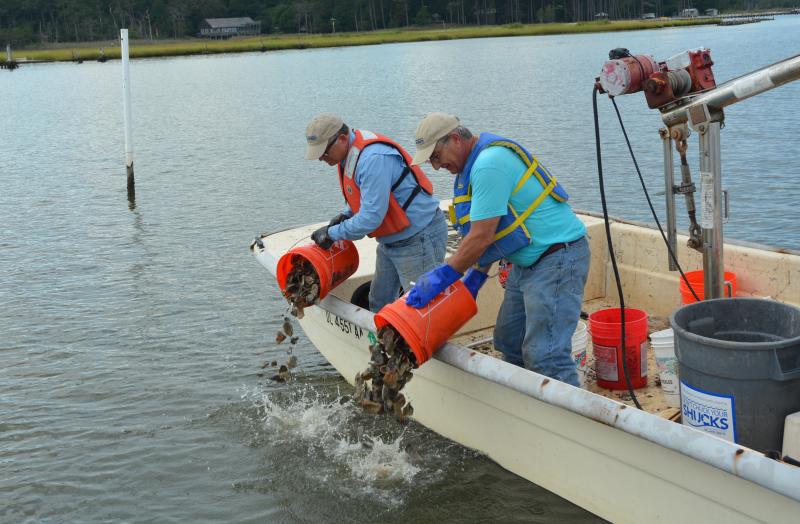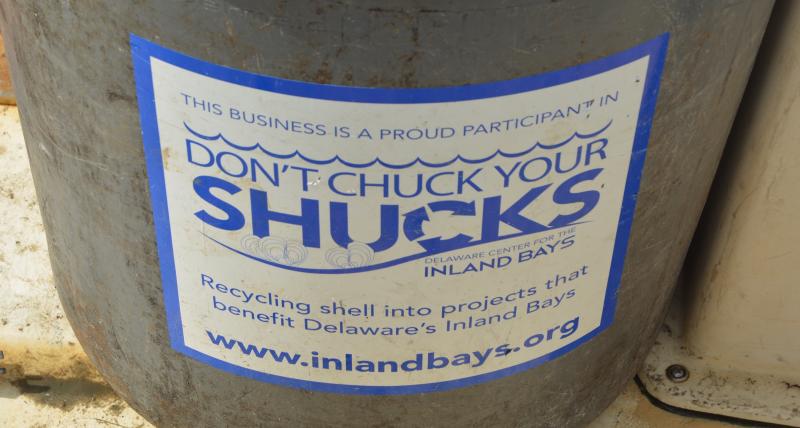Oyster-gardening program nears end after two decades

After nearly 20 years, the Delaware Center for the Inland Bays’ oyster-gardening program is ending.
Some of the last oysters collected as part of the program were transferred from a holding area on the eastern side of Rehoboth Bay to an artificial reef on the western side of the bay Sept. 13.
The goal of the program was to see if oysters could still be grown in the Inland Bays, said CIB Executive Director Christophe Tulou. When the program started in 2003, there were very few oysters in the Inland Bays and people weren’t sure if oysters could still be grown. Tulou said the program has been hugely successful.
CIB Programs and Facilities Manager Bob Collins captained a pontoon boat from the Indian River Marina out to the center’s artificial reef, near the shores of Camp Arrowhead. He said this was the first transfer of the year; there will be one more transfer using the oysters from the gardening program.
A team of CIB employees – Shellfish Program specialists Jack Gazda, Jim Tully, Andy Twarowski – met the pontoon boat at the artificial reef on a skiff outfitted with a crane to lift the oysters out of the water. They collected about six bushels of oysters.
Gazda and Tully dumped the oysters, some larger than a grown man’s hand, onto the reef while Twarowski moved the skiff around in the bay’s waist-deep water.
After the transfer, the pontoon headed back to the Indian River Marina. Collins let off the passengers before docking the boat in its slip. Pointing to the oysters growing on the metal walls of the marina’s bulkhead, Collins said, “That never would have been here before.”
Standing on the dock, Tulou said the oysters are akin to the kidneys of a critically ill patient – they can do a lot of work, but they can do more if a person’s diet is healthy.
The center still has plans for new restored reefs and to use its aquaculture lease near Bacon Island as an area for oyster research. Tulou said the center has plans to create more artificial reefs using old oyster shells from its Don’t Chuck Your Shucks program as the foundation.
The program has shown there can be a self-sustaining population of oysters in the bays, and the oysters being produced by the aquaculturists have a tremendous reputation, he said.
Chris Flood has been working for the Cape Gazette since early 2014. He currently covers Rehoboth Beach and Henlopen Acres, but has also covered Dewey Beach and the state government. He covers environmental stories, business stories and random stories on subjects he finds interesting, and he also writes a column called Choppin’ Wood that runs every other week. He’s a graduate of the University of Maine and the Landing School of Boat Building & Design.




























































